Guest Blogger: Our special guest contributor this post is Melissa Michalski, co-owner of CertPro Accounting Team, a proud member of IPBC, a Certified Professional Bookkeeper and a graduate of the Black Swan Project.
In the first and second part of my Building Relationships blog series, I discussed building connections with suppliers, customers, and within the company. While these are vital parts of a successful company, is it crucial to ask yourself the following questions; are you satisfied with its operations? Are things running smoothly, are your emotions in a good place? Can you count on your team? No one is perfect; it is okay to answer no to some of these questions. However, you should find ways to have your company operate smoothly. This can help your company achieve greatness.
Here are the areas that our company focuses on, to ensure things are operating as smooth as possible:
- Work-life balance
- Scheduling
- Accountant relationships
- Professional development
- Meetings
It is necessary to ensure that the individuals within your organization have a healthy work-life balance. This makes it easier to build and enjoy internal relationships. At our office, my business partner and I have our individual set of client files. This is helpful because it allows us to become familiar with our portion of the customers and their businesses. We offer support to one another, but we have our own clients. A split work load makes meeting deadlines attainable, as it allows us to focus on a few key tasks at once.
To help maintain a work-life balance, my partner and I also make sure that we have healthy thoughts and high morale. Personal life is a key component to becoming a better worker. It is imperative to know when to end your work day, so that you can come back at it with a clear mind the following day.
This leads to my next point, scheduling. In the past, this has occasionally been an issue for my partner and I. We are trying to schedule upcoming deadlines into our daily calendars; this allows us to use our time more effectively. Planning ahead allows us to enjoy personal time more often. Work-life balance creates a healthy emotional space which leads to increased productivity. We improve our efficiency by delegating tasks. For example, we schedule a trusted individual to do our drop offs for us. This allows us to use our time on other business matters.
Although we do not work with an accountant directly in our home office, it is still important to build relationships with the accountants that we work with. If we can prepare the year-end documents in a format the accountants like, it will help make their work easier and it will make them happier. Our company and the accountants have one thing in common, our respective customers and their businesses. We need to remember that the relationship with the accountant is just as valuable as that with the customer. That’s why our company makes a point to have lunch with our accountants multiple times a year, to ensure that communication is effective. Remember, accountants can be a notable referral system for the company.
It is essential that you keep your accounting knowledge up to date by using professional development tools. These tools include conferences, webinars, and experts in your field. This is a powerful way to set yourself and your company apart from the competition. By gaining new knowledge, you are aware of any new developments and technological advances in your field, making your work easier.
Lastly, our company holds weekly meetings. We use these to keep each other in the loop, discuss business needs, and ask one another questions. This allows us to build a strong and unified company. Although we may be responsible for different clients, we are always aware of what our coworkers are focused on. In the case that we can’t meet face to face, we have skype or phone conferences. These weekly meetings have made a substantial difference in our company, and we see the benefit in our work.
My last challenge for you is to find an area in your company that you could improve on. It could be weekly meetings, building your professional development tools, or implementing a new program. Try something new and see how it helps your business!

